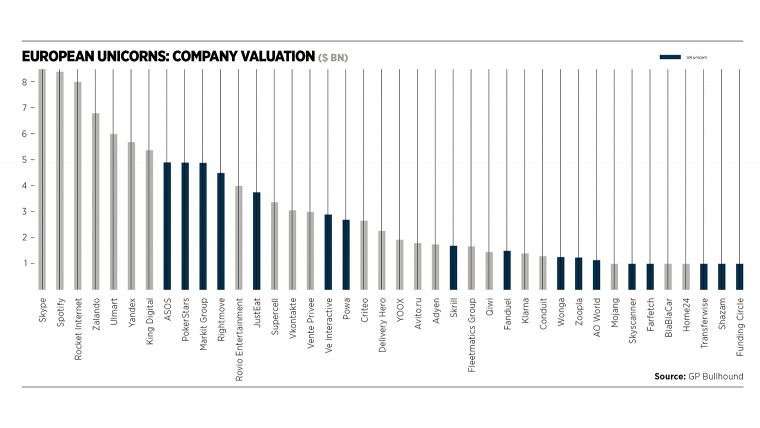The word of the moment is “unicorns”. They are startups that achieve a billion-pound valuation. Unicorns number 40 in Europe, with 17 in the UK, including Shazam, Wonga and Just Eat.
Hype around the internet of things (IoT) means investors are looking for the potential unicorns in the sector. But where should they be hunting?
We know unicorns hide in unlikely spots. US startup Nest focused on central heating. Users can alter heat settings using their mobile. Google bestowed the unicorn horn in a $3.2-billion cash acquisition in 2014.
Taxi firm Uber is arguably an IoT startup. The app turns a smartphone into a GPS tracker for taxis, a key part of the appeal. Fundraising valuations place it at $40 billion.
So it can be done. Who are the outstanding candidates?
In the consumer sector, Bluesmart is luggage bristling with IoT features. There’s a GPS tracker, built-in scale, a digital lock managed from a smartphone and a battery reserve for charging mobile phones – surprisingly handy for long journeys. Bluesmart’s luggage set retails for £245 and has picked up awards such as “Most life-changing product 2014” from BuzzFeed.
The more devices that enter the IoT realm, the more these sorts of mash-ups will proliferate
Netatmo is a face-recognition camera for the home. The device looks like a webcam mounted on a cylinder and it can be placed anywhere to scan passers-by for familiar faces. When it spots someone friendly it sends a message to your smartphone. Ideal for parents of latch-key kids who come home to empty houses.
Mybitat takes the concept a little further for the elderly. Sensors monitor the condition of senior citizens who live alone and supply updates to the family or to the emergency services in extremis. The market is huge as more than 10,000 baby boomers retire every day in America alone. Samsung has stepped in to develop a range of products with the company.
Heavy industry ought to be a rich environment for IoT startups. The energy sector in particular is providing fertile ground. Oil and gas wells are labour intensive to monitor. PumpWELL Technologies supplies sensors to send remote health checks to an engineer’s mobile phone.
Chief executive Nav Dhunay says: “One of the main challenges in IoT adoption by oil and gas producers has been distrust of change, and a costly barrier to entry. We are building sensors that are substantially less expensive than anything else in the market and are able to place those sensors strategically across a pumping well.
“If remote sensors could do nothing more than simply confirm a well is pumping and fluid is flowing, then that would be a disruption within the industry, as there would be no need for highly paid operators to physically visit the site which often can cost between $500 and $1,000 per well per visit.
“The fact that these sensors and control mechanisms can also analyse patterns in pumping data for every individual well and literally adjust the pump in real time to operate in the most efficient way is a game-changer.”
City design is boom area in IoT. Canary Wharf Group and innovation consultancy Entiq are running the Cognicity Challenge to promote smart city IoT startups. Members include Heat Genius, which takes the Nest thermostat idea, but refines the heat management for each room in the house. Boldmind uses IoT to provide analytics for retailers of traffic flow and crowd movements in built-up areas. BuzzStreets is developing traffic incident reporting systems to help commuters. Voyage Control is helping to optimise deliveries by routing trucks intelligently.
[embed_related]
The platforms needed to make IoT work will be a lucrative arena. Jasper Technologies, a software company which provides a simple way for all sorts of products to be turned into IoT devices, raised $50 million last year giving it a value of more than $1 billion. Jasper’s service is used by more than a 1,000 companies in over 20 industries. Topcon Precision Agriculture, which creates automatic steering for tractors, uses the Jasper platform for its suite of services. Jasper means there is no need for Topcon to create dashboards and reporting systems from scratch.
There are well-funded platforms made by IFTTT, EVRYTHNG, Concirrus and pretty much all the major names in tech, from HP and Oracle to EMC and Huawei. Google, naturally, has its own platform for IoT called Brillo. Based on Android, it will include voice commands. But we won’t find out the full details until the autumn. These may make life harder for startups to compete.
Perhaps the key to success will be the way IoT devices interact with each other. RealVNC builds remote-control systems used in more than two billion devices. RealVNC’s vice president of mobile Tom Blackie says he’s on the look-out for devices talking to each other.
“Think of your GPS location from your vehicle being used to trigger your smart-home Google Nest thermostat or switching on the lights as you pull into the drive. All these will be done automatically by ‘intelligent agents’ running in the background, learning your habits and doing useful things for you,” he says.
The more devices that enter the IoT realm, the more these sorts of mash-ups will proliferate.


